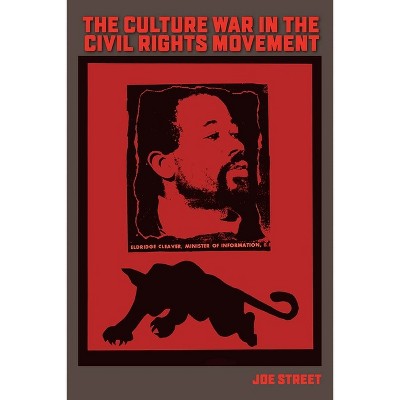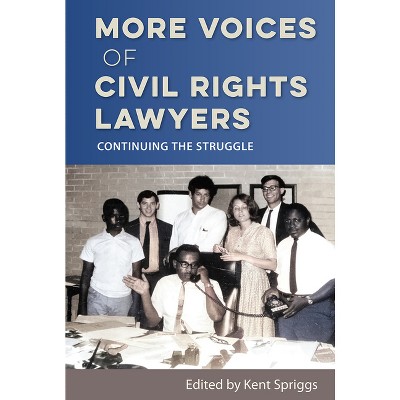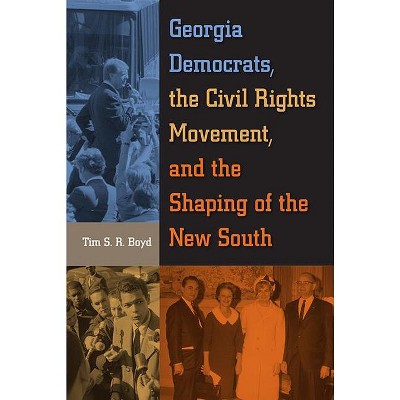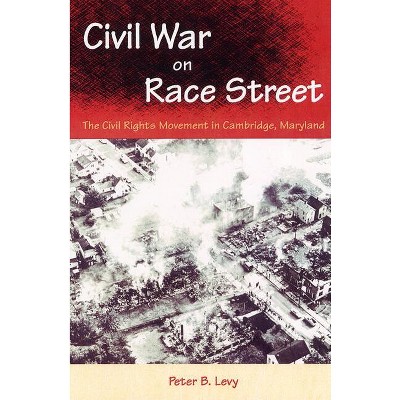Afro-Politics and Civil Society in Salvador Da Bahia, Brazil - by Kwame Dixon (Paperback)

$22.72 sale price when purchased online
$26.95 list price
Target Online store #3991
About this item
Highlights
- "Powerfully illustrates that Bahia has a vibrant black political history worthy of documentation, re-centering the scholarship on race and politics to the northeast where the black population is the majority.
- About the Author: Kwame Dixon is assistant professor of African American studies at Syracuse University.
- 188 Pages
- Political Science, World
Description
Book Synopsis
"Powerfully illustrates that Bahia has a vibrant black political history worthy of documentation, re-centering the scholarship on race and politics to the northeast where the black population is the majority."--Keisha-Khan Y. Perry, author of Black Women against the Land Grab: The Fight for Racial Justice in Brazil "English-language work has rarely paid such attention to discourses in Afro-Brazilian communities on civil society inclusion and the process of democratization. This book is a significant contribution to understanding that movement for change and social justice."--Clarence Lusane, author of The Black History of the White House Brazil's black population, one of the oldest and largest in the Americas, mobilized a vibrant antiracism movement from grassroots origins when the country transitioned from dictatorship to democracy in the 1980s. Campaigning for political equality after centuries of deeply engrained racial hierarchies, African-descended groups have been working to unlock democratic spaces that were previously closed to them. Using the city of Salvador as a case study, Kwame Dixon tracks the emergence of black civil society groups and their political projects: claiming new citizenship rights, testing new anti-discrimination and affirmative action measures, reclaiming rural and urban land, and increasing political representation. This book is one of the first to explore how Afro-Brazilians have influenced politics and democratic institutions in the contemporary period.Publication of the paperback edition made possible by a Sustaining the Humanities through the American Rescue Plan grant from the National Endowment for the Humanities.
Review Quotes
"Details the slow rise of
Afro-Brazilian political organization in Salvador, the majority-black capital
of Brazil's Bahia state, and sets it within such change in Brazil and the
African diaspora. . . . Contributes to comparative studies of the rise of black
consciousness. . . . Recommended."--Choice "Synthesizes the great
complexity of the history of what has been called 'the Brazilian black
movement' with a special focus on the most visible location of blackness in
that country: Salvador and the state of Bahia."--Latin American Research Review "Of great interest to
scholars and students of the African diaspora and Brazilian politics."--The
Americas "Without
a doubt, this book is an important contribution to the emerging literature on
the black public sphere, and black politics vis-à-vis racialized civil society
in the African diaspora. . . . [This book] stands out as an engaging and
serious attempt to recognize and understand the roadblocks blacks face in their
(our) attempt to hold a civic existence."--National Political Science Review
About the Author
Kwame Dixon is assistant professor of African American studies at Syracuse University. He is coeditor of Comparative Perspectives on Afro-Latin America.Dimensions (Overall): 9.0 Inches (H) x 6.0 Inches (W) x .44 Inches (D)
Weight: .63 Pounds
Suggested Age: 22 Years and Up
Number of Pages: 188
Genre: Political Science
Sub-Genre: World
Publisher: University Press of Florida
Theme: Caribbean & Latin American
Format: Paperback
Author: Kwame Dixon
Language: English
Street Date: August 2, 2022
TCIN: 91951263
UPC: 9780813068787
Item Number (DPCI): 247-19-7080
Origin: Made in the USA or Imported
Shipping details
Estimated ship dimensions: 0.44 inches length x 6 inches width x 9 inches height
Estimated ship weight: 0.63 pounds
We regret that this item cannot be shipped to PO Boxes.
This item cannot be shipped to the following locations: American Samoa (see also separate entry under AS), Guam (see also separate entry under GU), Northern Mariana Islands, Puerto Rico (see also separate entry under PR), United States Minor Outlying Islands, Virgin Islands, U.S., APO/FPO
Return details
This item can be returned to any Target store or Target.com.
This item must be returned within 90 days of the date it was purchased in store, shipped, delivered by a Shipt shopper, or made ready for pickup.
See the return policy for complete information.











